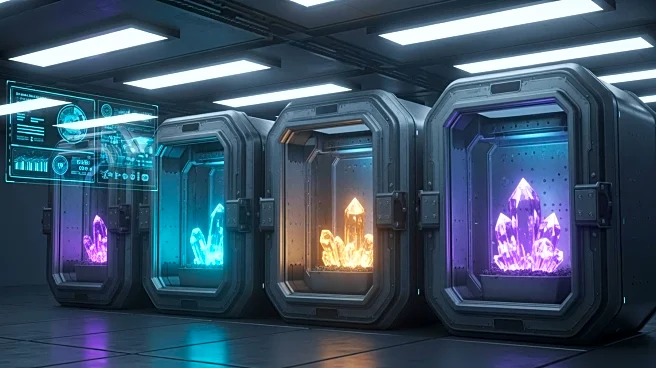What's Happening?
The European Union has created a 'special channel' of communication with China to ensure the steady supply of rare earth materials crucial for EU industries. This development comes in response to China's
export controls on rare earths, which raised concerns about potential disruptions in the production of electric vehicles, wind turbines, and other technologies reliant on permanent magnets. EU Trade Commissioner Maros Sefcovic announced the initiative during the 2025 GCC-EU Business Forum in Kuwait, emphasizing the importance of efficient export procedures to avoid negative impacts on EU manufacturing. The EU and China have agreed to prioritize applications from European companies, with over half of the 2,000 applications submitted already approved. Efforts are also underway to diversify supply sources within Europe.
Why It's Important?
The establishment of this communication channel is significant as it addresses the EU's dependency on Chinese rare earth materials, which are vital for various high-tech industries. The move aims to mitigate risks associated with supply chain disruptions that could affect the production of key technologies. By securing a reliable supply, the EU can maintain its competitive edge in manufacturing and technology sectors. Additionally, the initiative reflects broader efforts to diversify supply chains and reduce reliance on a single source, which is crucial for economic stability and strategic autonomy.
What's Next?
The EU will continue to press China for faster processing of export permits while developing alternative sources within Europe. This includes exploring rare earth production in Estonia. The EU Commission is also discussing general licenses to ease exports, similar to those secured by the United States. These steps are part of a broader strategy to ensure long-term supply chain resilience and reduce dependency on Chinese materials.
Beyond the Headlines
The EU's move to secure rare earth supplies highlights the geopolitical dimensions of resource dependency and the strategic importance of diversifying supply chains. It underscores the need for international cooperation in managing critical resources and the potential for diplomatic tensions arising from resource control.









